 Loading...
Loading...
 Loading...
Loading...
Integrating transport services is crucial to ensuring more efficient and sustainable urban mobility. Supported by Open Data Hub,the MaaS4Italy project is changing the way citizens and tourists travel by bringing together public transport, car sharing, bike sharing and taxis on a single digital platform offering Mobility as a Service (MaaS). Thanks to Open Data Hub, local operators can easily access and share mobility data without worrying about complex technical standards. Find out how this innovation is improving the travel experience and facilitating access to real-time mobility data across Italy.
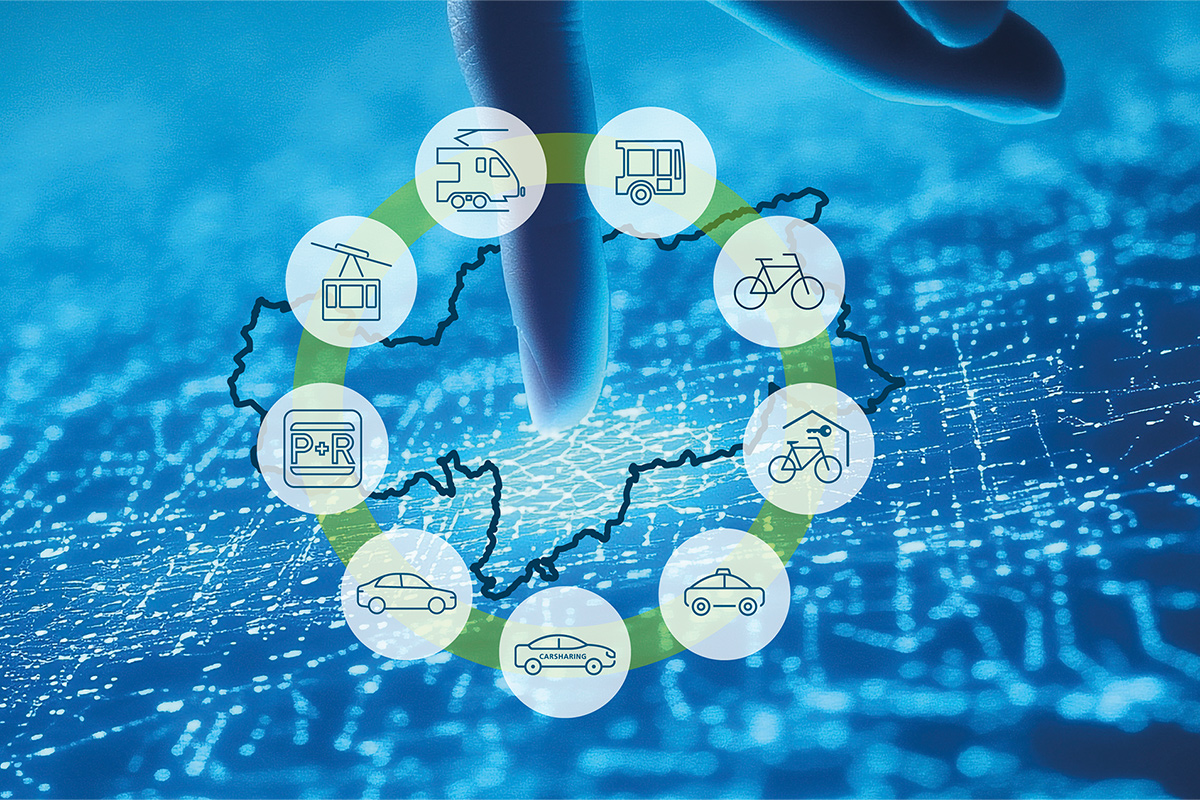
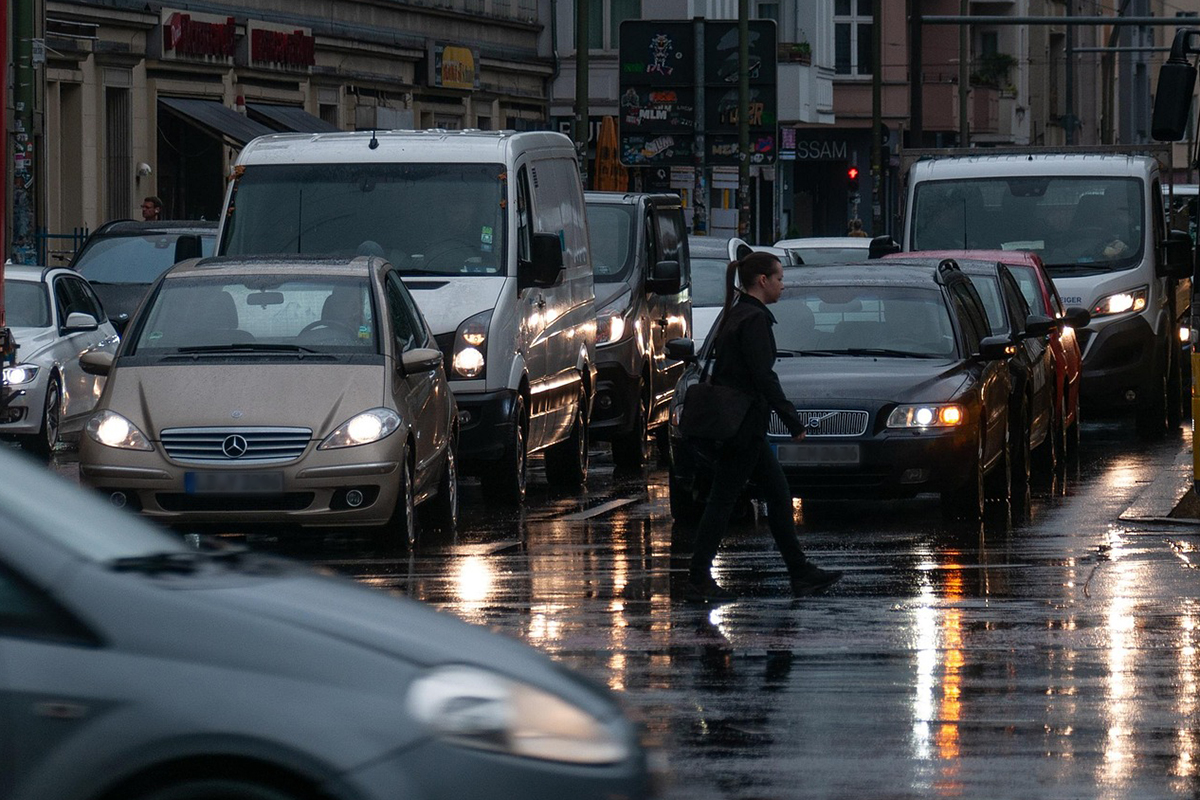
The challenge:
Urban mobility in Italy is characterised by a wide variety of public and private transport services that often operate in isolation from one another. Users have to use different platforms to plan, book and pay for their journeys, making the process fragmented and inefficient. Furthermore, integration of data between local and national operators hampers the adoption of complex standards, which hinders the development of integrated multimodal mobility solutions.
The solution:
The MaaS4Italy initiative, promoted by the Italian government, aims to transform the country’s mobility system by embracing the concept of ‘Mobility as a Service’ (MaaS). This model integrates various transport services, including public transport, car and bike sharing, and taxis, into a single platform. This allows users to easily and efficiently plan and manage their journeys.
The national Data Sharing & Service Repository for MaaS (DSRM) platform was introduced to support this initiative, collecting and distributing transport data nationwide. However, many local mobility providers were daunted by the complexity of the standard connection protocols required, such as NeTEx and SIRI.
Thanks to the Open Data Hub mobility data platform, the Province of Bolzano became the first in Italy to provide mobility data in the required standard formats. This simplified the connection process for local operators and encouraged the nationwide adoption of MaaS.
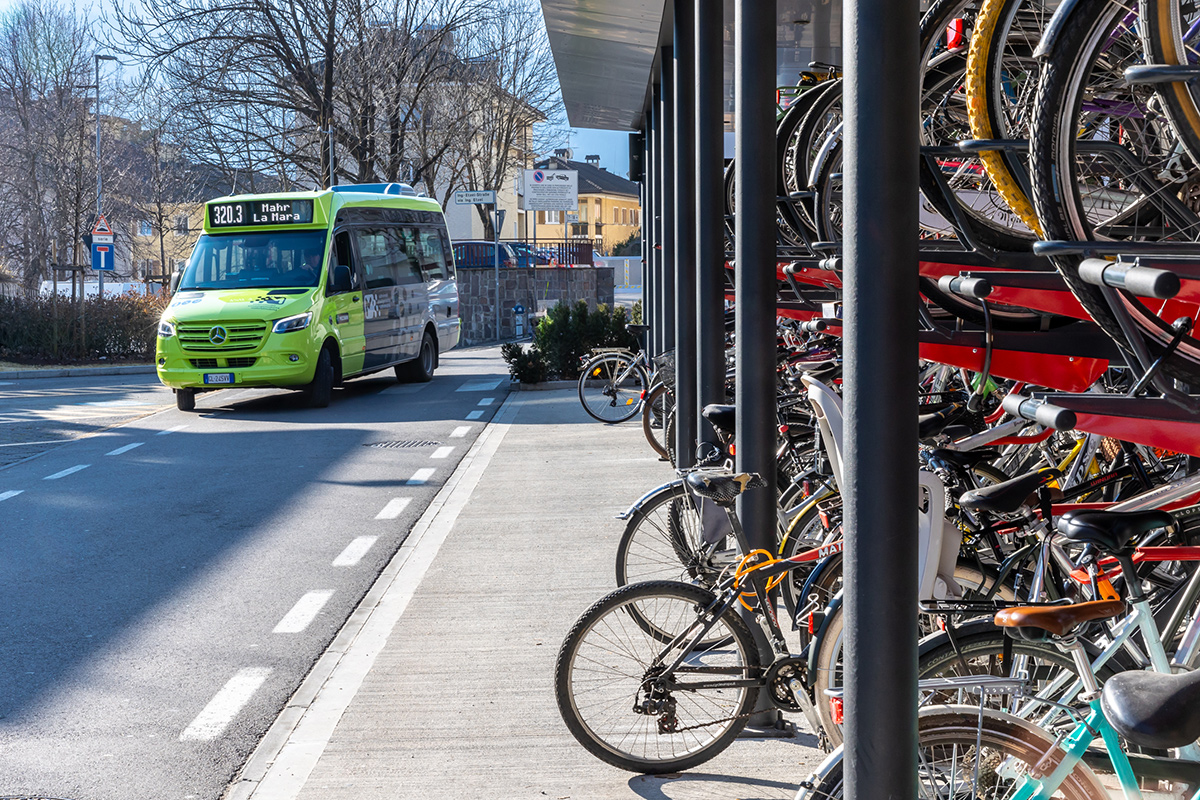
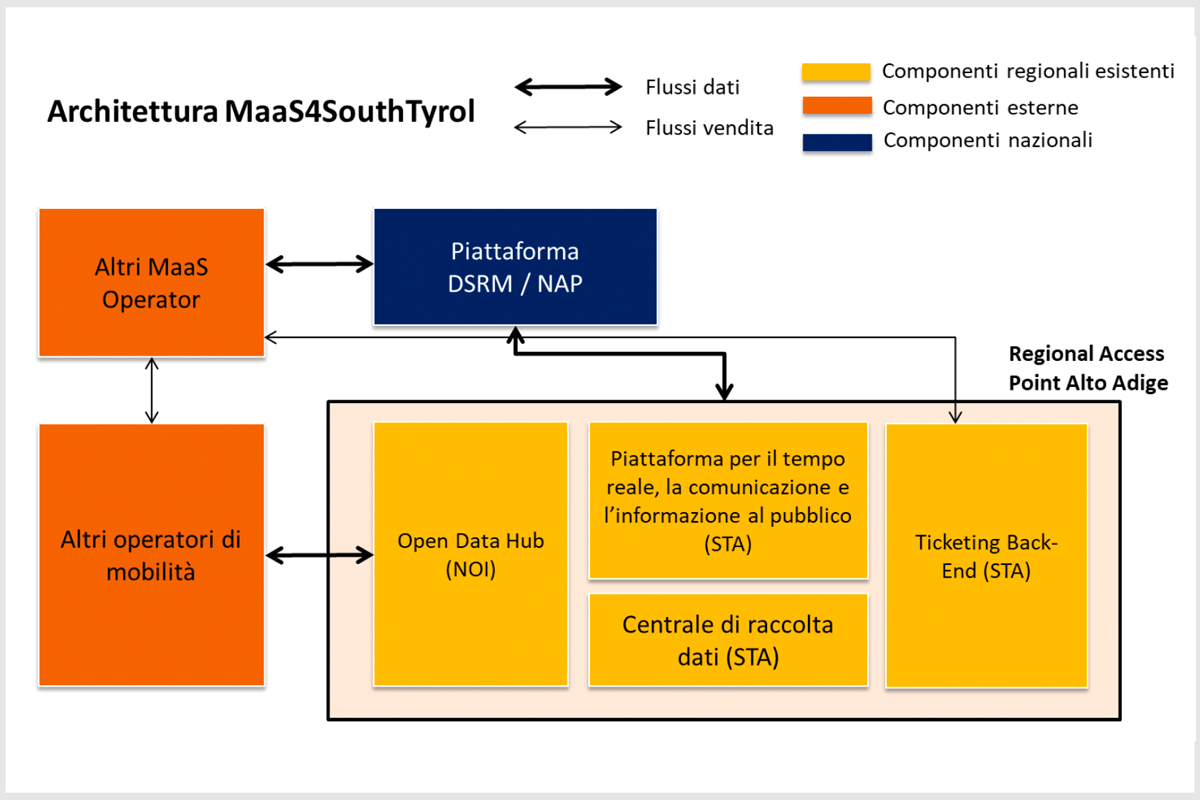
The role of the Open Data Hub:
The Open Data Hub acts as an intermediary between local mobility service providers and the national DSRM platform. It converts data into the required NeTEx and SIRI formats before providing it to the platform. This eliminates the need for operators to implement these complex protocols themselves, thus facilitating the integration of their mobility data into the MaaS platform.
Benefits:
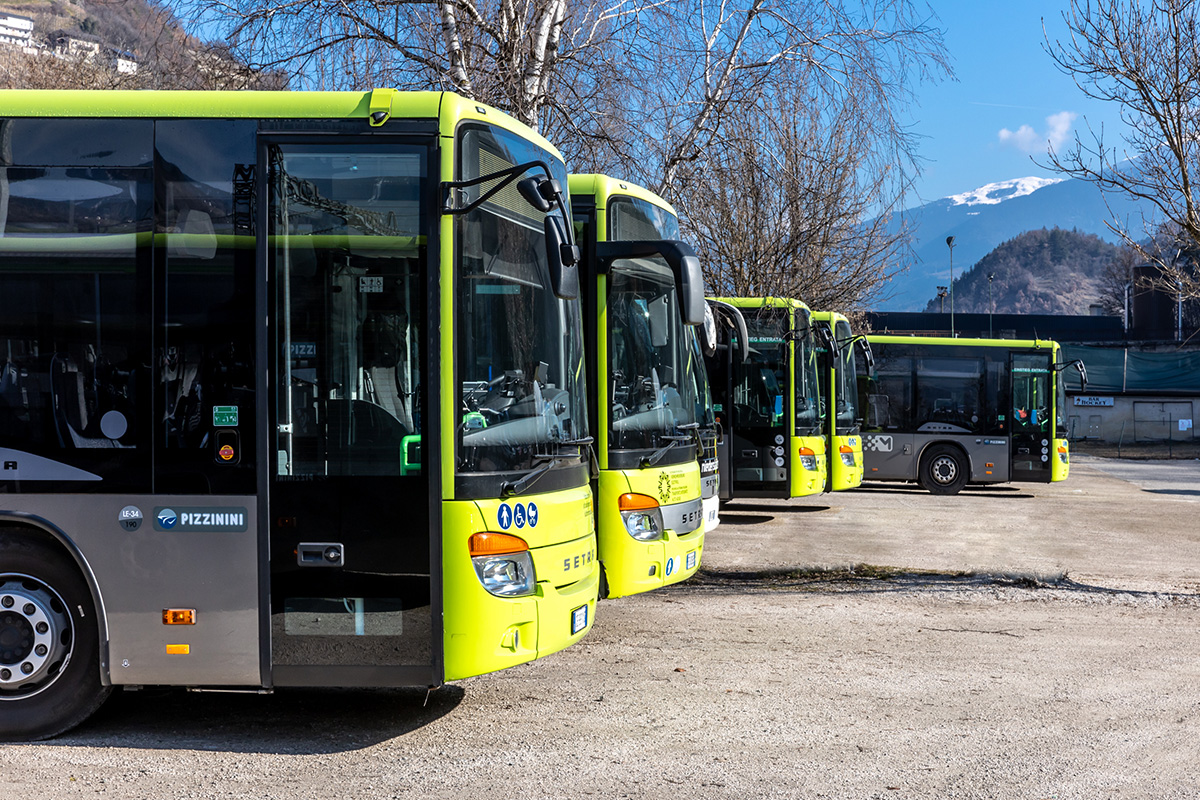
Alexander AlberThanks to the Open Data Hub we were the first territory in Italy to provide mobility services data in the standardized formats requested and we could support other regions in this work.